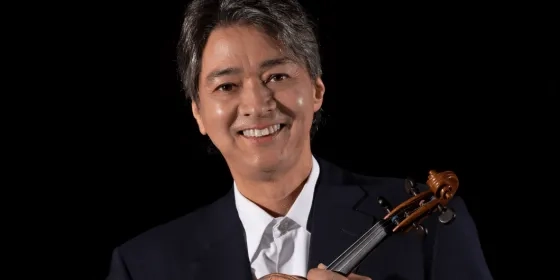Instructor Ian Swensen: Six Things Every Musician Should Know
The SFCM Newsroom sits down with Violin Department Chair and Professor Ian Swensen to find out how he prepares for performances, what inspires him, and the top six tenets every young musician needs to know.
By Mark Taylor
Ian Swensen knows his strings. The violin player has been teaching at SFCM for decades after starting out as a child prodigy from a very musically talented family. A world class clarinet player as a father, and an exceptionally talented pianist as a mother, he and his siblings stayed in tune with their parents. “My brother, sister, and I all studied music and went to Julliard before the age of 10,” Swensen said of his early music education.
A decorated career in music has brought the violinist to SFCM to teach the next generation of musicians through practice and performance. Swensen will be featured in a solo performance at the upcoming SFCM Orchestra concert on October 23rd. Ahead of the upcoming show, Swensen shared some wisdom with students and audience members alike.
How do you prepare for live performances?
I prepare for performances by practicing, studying scores, playing bass lines on the piano, and reading about the works. I also listen to many recordings of wonderful players. It’s great to have an inspiring project.
At the upcoming October 23rd concert you will be playing a staple of the violin repertoire. Can you tell us more about that?
The Poéme of Chausson is a stunning piece of music! It’s such a pleasure and powerful sensation to get to know the piece deeper. It’s a gift.
What are you most excited for in the future of music?
Music is such a rich field with so much energy and diverse cultural connections all over the globe. I believe a connection of the music of our world is developing bonds between cultures, styles and generations. I feel the work and passion for the arts brings us all joy and a fulfilling inner life. It’s a blessing to be part of the musical world.
What are six things you think every young musician needs to know?
1. Study bass lines. They are melodies.
2. Sing the melodies. Rock with the rhythm.
3. Don’t be afraid to love music and work until you’re feeling deeply satisfied.
4. Find a strong physical sense and musical voice to ground your technique.
5. Work on the parts that need work every day, many times for short durations.
6. Enjoy music, enjoy life. There’s no final perfection, just the joy of every moment.
